16 min read
Share this post

In this post, I will discuss several different modal verbs and ways to practice them with your ESL students. This post is a goldmine for ESL teachers because it includes seven communicative lesson plans that are sure to please both you and your students. Continue reading to learn more about the lesson plans and how to use them in your ESL classroom.
A modal verb is a type of verb that indicates likelihood, ability, requests, suggestions, or any other modality. Modal verbs are different from other verbs because they come before the infinitive of another verb (without the word to). Common modal verbs include can, could and should but there are many more of them that you’ll go over with your students.
These lesson plans are designed for understanding various modal verbs in English. They are also wonderful resources if you need a quick review lesson for your students. Feel free to mix and match these lessons, using them in your daily warm-up activities. Students always benefit from review, so keep these lesson plans close by so you can refer to them whenever you need to.
This lesson plan is a great introduction to modal verbs. It is designed for beginner students and focuses on the use of can and can’t to discuss ability, possibility and permissions. Throughout this lesson, students can practice both the positive and negative forms of can and could. In addition, students will study common questions and short answer prompts used in spoken English.
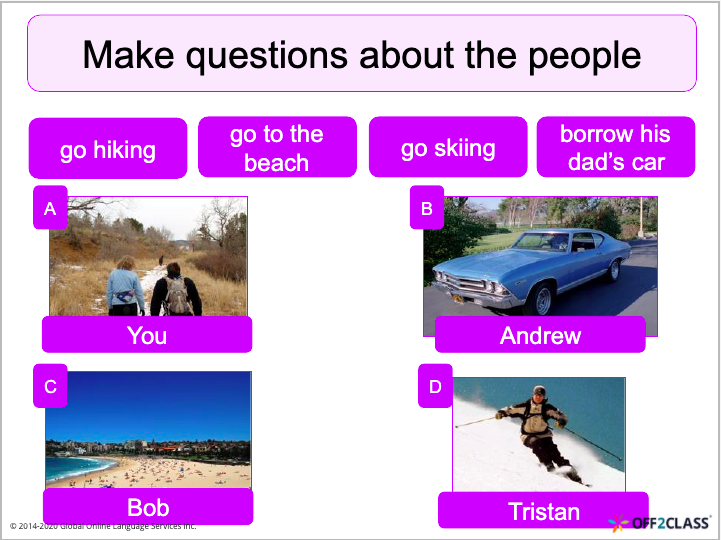
Download the lesson plan Ability – Can and could here:
This lesson plan is great for beginner students and introduces them to the concepts of possibility and probability. Your students can practice speaking, reading and listening while using may, might and could in positive and negative forms.
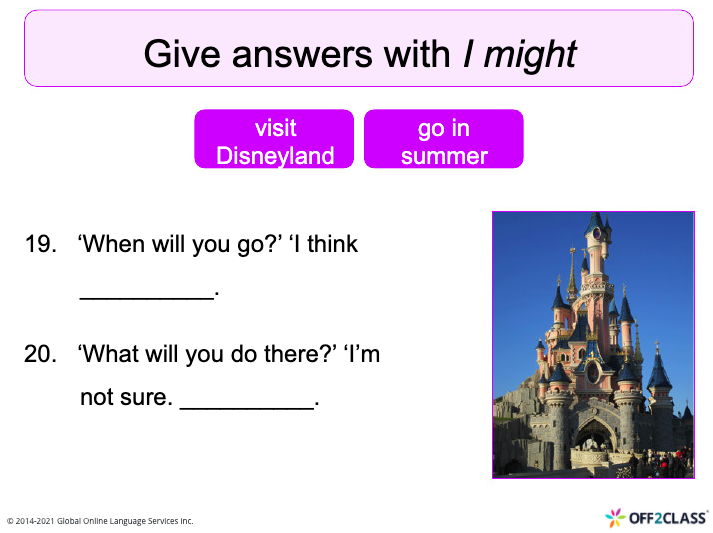
Download the lesson plan Probability – May, might and could here:
This lesson plan focuses on using the subject I to ask for permission and make requests. As well, it covers using you as the subject to make polite requests. It also outlines formal and informal ways to use these specific modal verbs. This is a great lesson plan for you to use with pre-intermediate students and as a review for intermediate students.
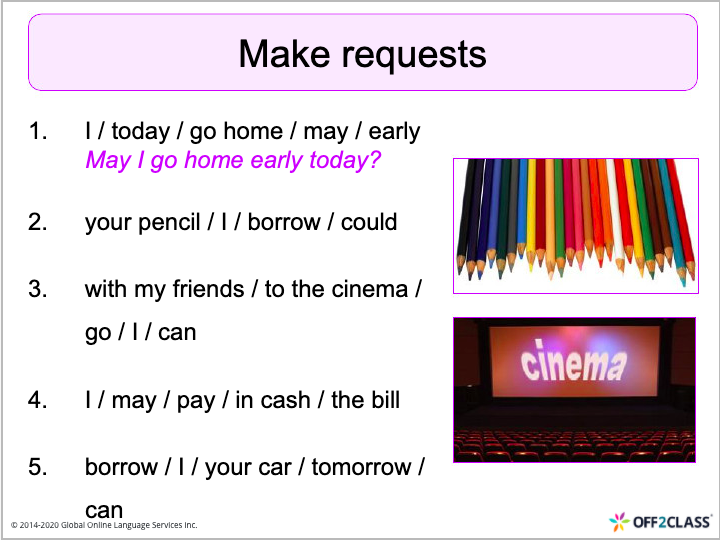
Download the lesson plan Requests – Would, could, can, may and might here:
Designed for pre-intermediate students, this lesson plan introduces the concept of necessity using must and have to. It also features gap-fill exercises and activities that allow students to express opinions in English.
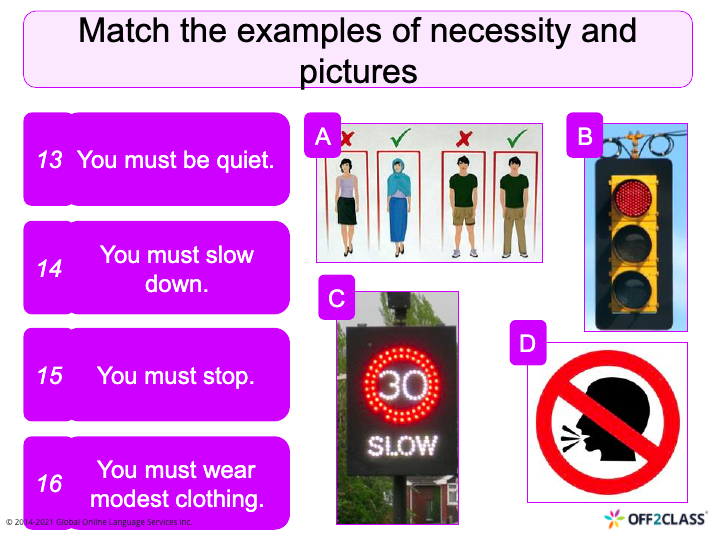
Download the lesson plan Necessity – Must and have to here:
Also designed for pre-intermediate ESL students, this lesson plan guides teachers and students through the use of the modal verbs should and shouldn’t for suggestions, duties, responsibilities and/or expectations. Students will also practise forming questions and speak using should to express expectations.
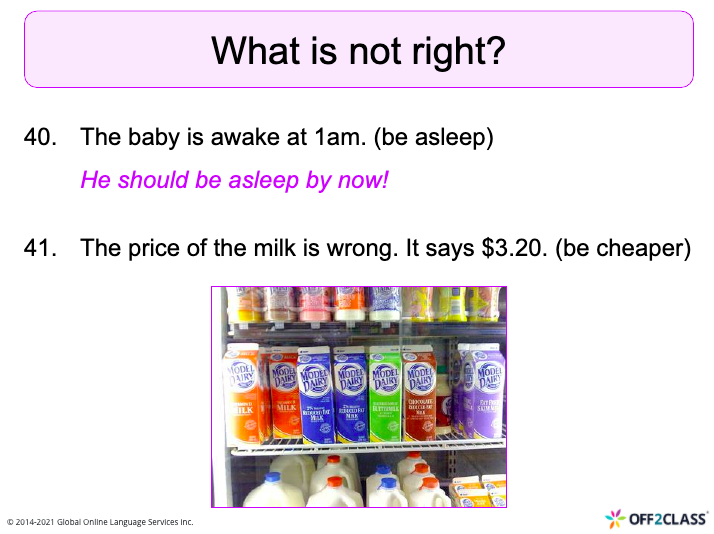
Download the lesson plan Advisability – Should here:
In this lesson designed for intermediate level learners, students are taught ways to use be supposed to so that they can communicate expectations. In addition, students will practice using be supposed to in the present and past tenses.
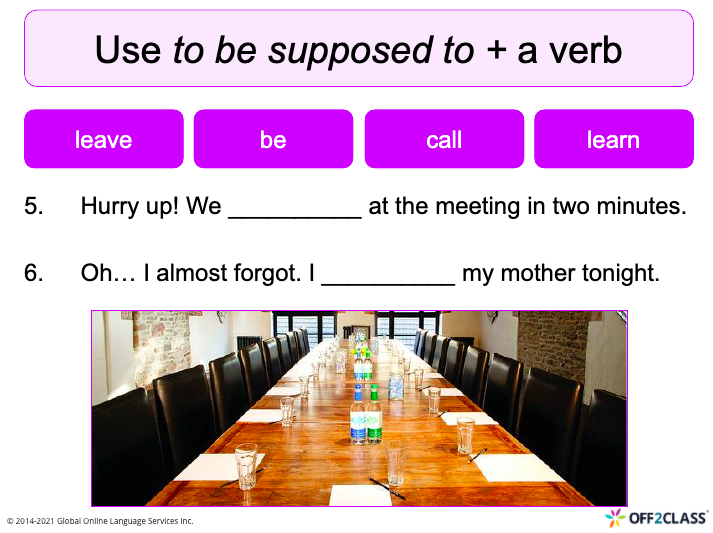
Download the lesson plan Expectations – Be Supposed to here:
This lesson plan discusses different forms to make suggestions in English. It contains useful phrases and activities for intermediate-level students to improve their speaking, writing and reading skills.
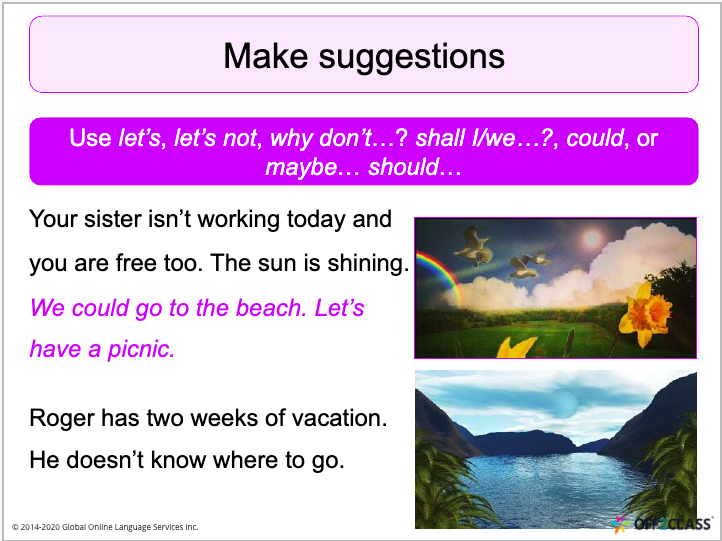
Download the lesson plan Suggestions – Let’s, why don’t, shall here:
These ESL lesson plans on modal verbs are an excellent addition to any ESL classroom, whether it is an in-person or virtual one!
Sign up for your free Off2Class teacher account to take your lessons to the next level. When you sign up, you will gain access to helpful teacher notes and homework assignments to send to your students after each lesson. Also, don’t forget to check out our ESL Lesson Plan Library where you’ll find hundreds of ESL lesson plans suitable for every level and ability. It’s okay to leave the hard work to Off2Class because we have you covered from step A to Z!
If you found these lesson plans helpful, don’t forget to share them and comment below. We love hearing from other ESL teachers like you!
Share this post


